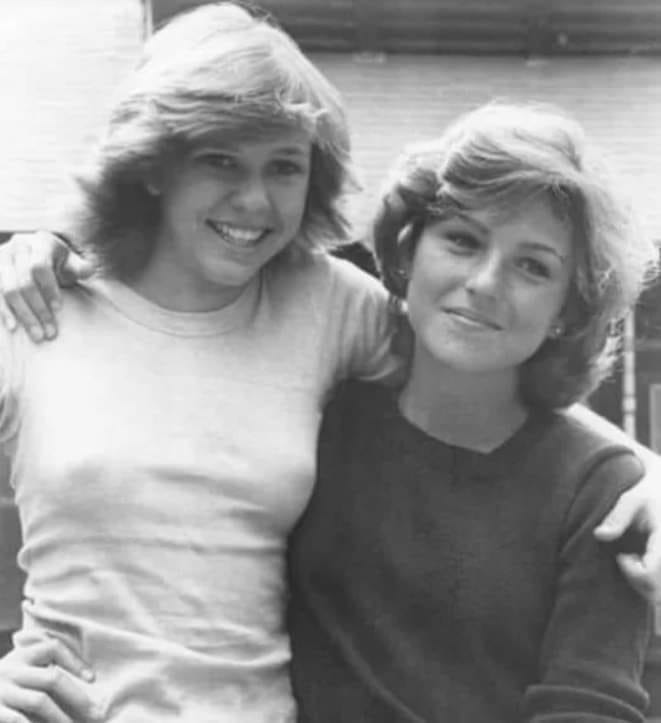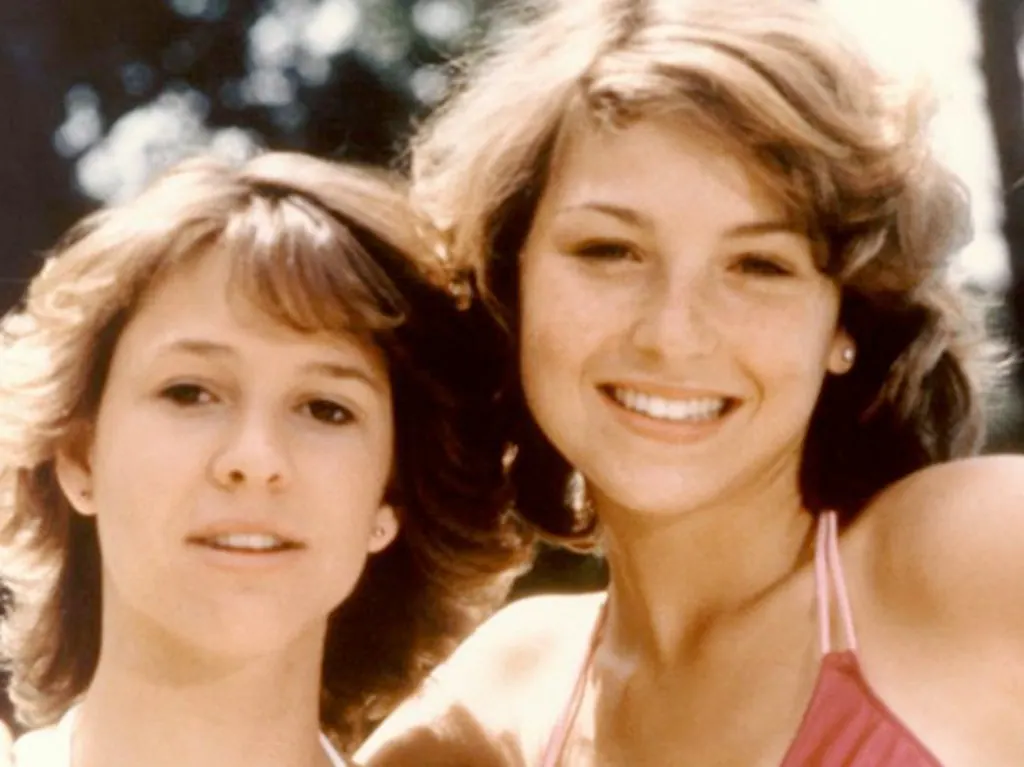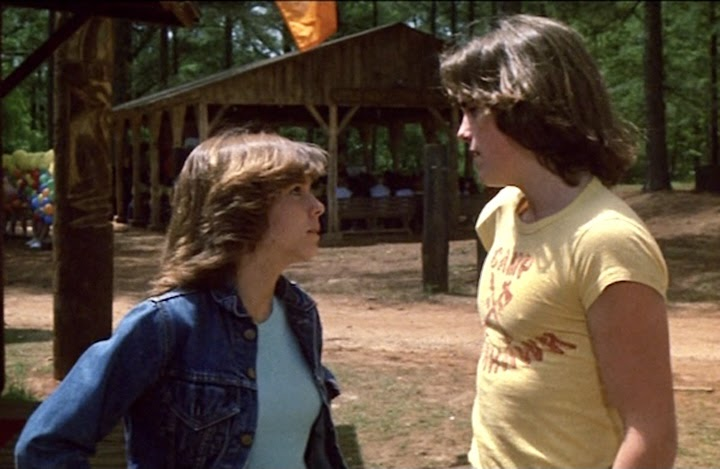The 1980s were a transformative era for cinema, and among the gems of the decade is Little Darlings (1980). This summer camp coming-of-age tale starring Kristy McNichol and Tatum O’Neal goes beyond the superficial tropes of the genre to deliver a nuanced and heartfelt exploration of teenage life. While its premise might initially seem provocative, the film surprises audiences with its maturity, sensitivity, and a focus on the female gaze.
Let’s dive into why Little Darlings remains a standout in 1980s cinema.

A Bold Premise with Unexpected Depth
Little Darlings centers on Angel (Kristy McNichol) and Ferris (Tatum O’Neal), two teenage girls from very different backgrounds who meet at summer camp. When a rivalry develops between them, they make a daring bet: who can lose her virginity first?
While the premise could have easily devolved into a shallow teen comedy, Little Darlings defies expectations by treating its subject matter with sincerity. The film delves into the pressures, emotions, and misconceptions surrounding teenage sexuality, offering a perspective that is both relatable and thought-provoking.
This isn’t just a story about a bet—it’s about self-discovery, friendship, and the complicated journey of growing up.
Kristy McNichol and Tatum O’Neal: A Perfect Pairing
The film’s heart lies in the dynamic between its two leads. Kristy McNichol shines as Angel, a tough, street-smart girl raised by a single mother. Her character exudes confidence, but beneath her bravado is a vulnerability that McNichol portrays with remarkable depth.
Tatum O’Neal, already an Oscar winner for Paper Moon (1973), delivers a subtler but equally compelling performance as Ferris, a privileged girl grappling with her insecurities. Her quiet moments of reflection and longing add layers to her character, making her more than just Angel’s foil.
The chemistry between McNichol and O’Neal is electric. Their rivalry transforms into an unlikely bond, showcasing the complexities of teenage friendships.
A Revolutionary Focus on the Female Gaze
One of the film’s most striking aspects is its dedication to the female gaze. Unlike many teen movies of its time, which often objectified young women, Little Darlings flips the script. The film is told from the perspective of its female protagonists, giving agency to their desires and experiences.

Take, for instance, the scene where Angel notices Randy (Matt Dillon) for the first time. The camera lingers on him in a way that mirrors Angel’s gaze, a rare example of a movie portraying a teenage girl’s attraction without judgment. Similarly, the film’s humor, such as the girls spying on boys skinny-dipping, feels playful rather than exploitative.
By prioritizing the perspectives of Angel and Ferris, Little Darlings offers a refreshing and empowering take on adolescence.
Matt Dillon’s Early Stardom
Little Darlings also marks an early milestone in the career of Matt Dillon, who plays Randy, Angel’s love interest. Dillon’s portrayal balances cockiness with tenderness, hinting at the star power he would later bring to roles in The Outsiders (1983) and Rumble Fish (1983).
Randy’s interactions with Angel highlight the complexities of teenage relationships. While he initially seems like the typical charming bad boy, his moments of vulnerability add depth to his character. His storyline underscores the film’s broader message: relationships are rarely as simple as they seem.
Exploring Teenage Sexuality with Sensitivity
Unlike many films of its era, Little Darlings tackles teenage sexuality with nuance and respect. It acknowledges the curiosity and awkwardness of adolescence without sensationalizing it.
Angel’s experience with Randy is a standout moment. Expecting to feel empowered after losing her virginity, she instead feels lonely and disappointed. “God, I feel so lonesome,” she confesses—a line that encapsulates the emotional complexities of the moment. This honesty sets Little Darlings apart from more superficial teen films, which often reduce such experiences to punchlines or plot devices.

Cynthia Nixon’s Quirky Debut
Years before Sex and the City, Cynthia Nixon made her film debut as Sunshine, the hippie daughter of free-spirited parents. Her character provides comic relief with her quirky antics, from distributing Niacin tablets to protesting competitive sports. Nixon’s performance hints at the charisma she would bring to her later roles.
Sunshine’s lighthearted moments contrast with the heavier themes of the film, adding balance to the story. Her character reminds viewers of the diverse personalities and experiences that make adolescence so unique.
A Soundtrack That Evokes Nostalgia
The soundtrack of Little Darlings perfectly captures the spirit of the late 1970s and early 1980s. Featuring hits by Supertramp, Blondie, and John Lennon, the music enhances the emotional impact of key scenes. Whether it’s a playful montage or a reflective moment, the songs transport viewers back to a time of innocence and self-discovery.
The music isn’t just a backdrop—it’s a character in its own right, adding depth and emotion to the story.
Subtle Humor and Relatable Moments
Little Darlings balances its heavier themes with moments of humor and relatability. From the girls’ mischievous antics to their candid conversations, the film captures the awkwardness and hilarity of adolescence.
One particularly memorable scene involves Jenn Thompson’s character sneaking into a locked bathroom to steal a condom dispenser. Her innocent curiosity contrasts with the older girls’ more serious explorations of relationships, highlighting the different stages of growing up.
Timeless Themes of Friendship and Growth
At its core, Little Darlings is a story about friendship and growth. Angel and Ferris begin the film as rivals, but their shared experiences bring them closer together. Their journey reflects the universal challenges of adolescence: navigating identity, relationships, and the expectations of others.
The film’s message is clear: growing up is messy, complicated, and often painful, but it’s also a time of connection and self-discovery.
A Film Ahead of Its Time
Released in 1980, Little Darlings feels surprisingly modern in its approach. Its focus on female agency, nuanced portrayal of teenage sexuality, and commitment to authentic storytelling make it a standout in the coming-of-age genre.
In an era dominated by male-centric teen comedies, Little Darlings offers a refreshing perspective. Its themes of empowerment, friendship, and self-awareness resonate just as strongly today as they did over 40 years ago.
Conclusion: A Hidden Gem Worth Rediscovering
Little Darlings is more than just a relic of the 1980s—it’s a timeless exploration of adolescence that continues to resonate with audiences. Its heartfelt performances, thoughtful storytelling, and groundbreaking focus on the female gaze make it a must-watch for fans of coming-of-age films.
Whether you’re revisiting it or discovering it for the first time, Little Darlings is a reminder of the power of authentic storytelling. It captures the awkward, beautiful, and transformative journey of growing up with humor, heart, and honesty. Don’t let this gem remain underappreciated—give it the recognition it deserves.